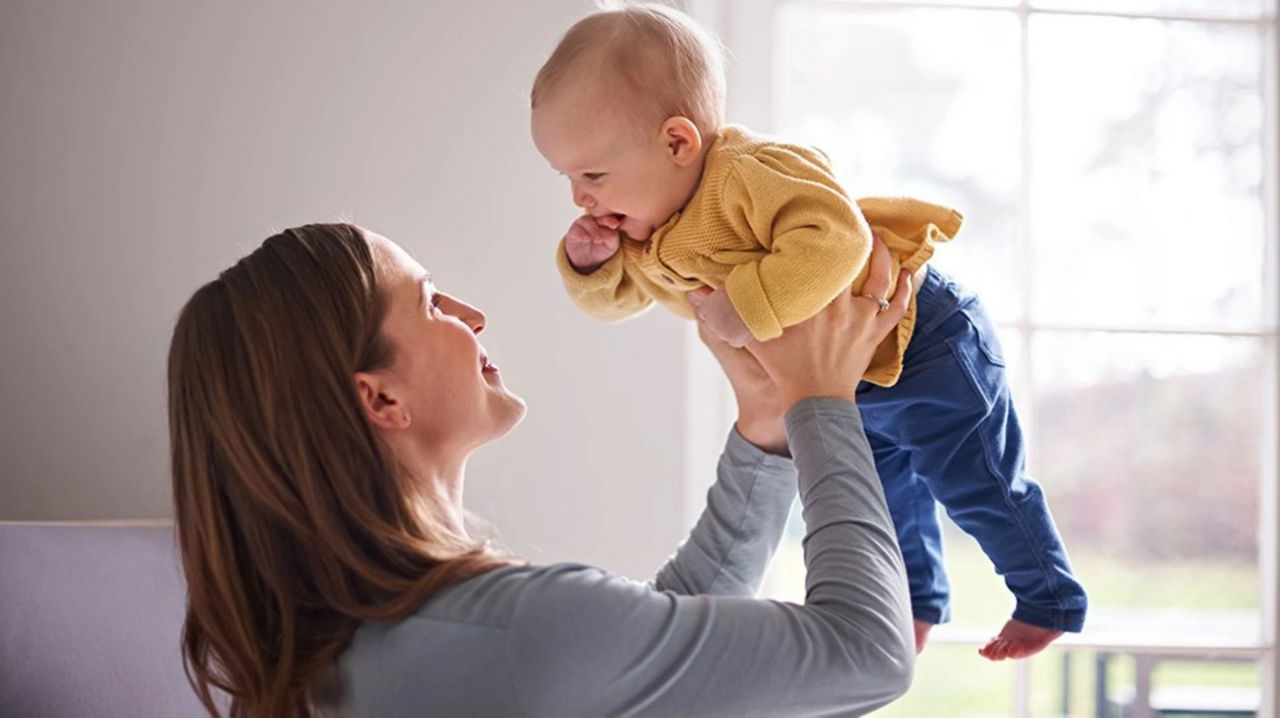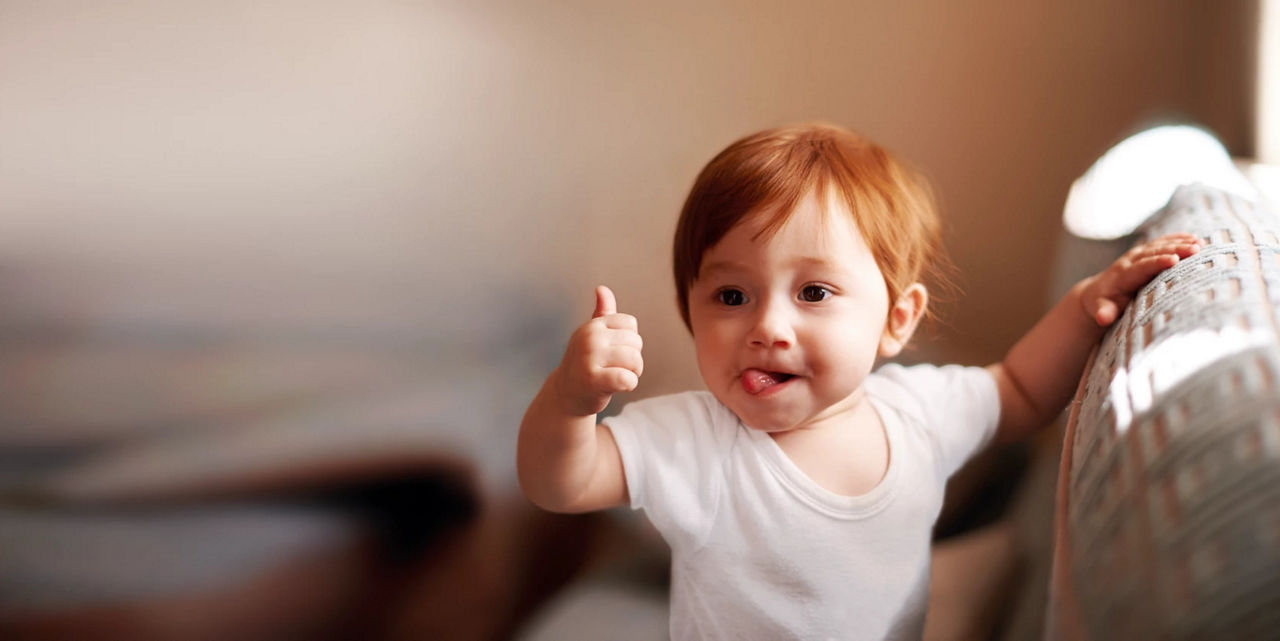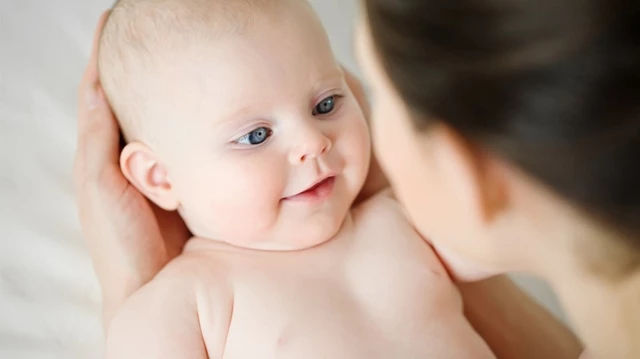Baby play: Having fun with your newborn
Your beautiful newborn baby is like a sponge, soaking up every new experience and learning and developing every day. That’s why, even when they are tiny, it’s a good idea to set aside some time each day for play. It will help you to bond and will be a welcome reminder that having a baby is about love and fun, not just nappies and sleepless nights.

Newborn ‘toys’
While they’ll grow to love their teddy in time, in the early days their favourite ‘toy’ is you. Studies show that babies respond to faces more than any other visual stimuli. Your baby may try to mirror your expressions in the early months; try sticking your tongue out at them and see what happens! Talking and singing to your baby and making faces and smiling at them are all simple ways to build emotional connections and communication skills1.
Physical contact provides a playful opportunity for your baby to discover the world around them. Move their legs and arms gently and use massage to soothe them. Your baby loves your touch, so picking them up and rocking them gently will help to strengthen the emotional bond between you – especially if you do it ‘skin-to-skin’.

Your baby may try to mirror your expressions in the early months; try sticking your tongue out at them and see what happens!
Sensory play
Sensory toys for babies
- Mobiles on their cot or changing table provide hours of mesmerising entertainment
- ‘Baby gyms’ are a safe way for your baby to play and will introduce different sights, sounds and textures to encourage their development
- Handheld toys such as rattles, soft toys, teething rings and cloth books are all tactile means of stimulating development
- Save playtime for daytime, so as not to overstimulate your baby before bed, and have fun.
Next steps
- Pick a regular time when your baby is awake and alert to spend some quality time having fun together. Newborns are easily tired, so 10 minutes can be enough in the early days.
- Look out for local baby massage classes or other activities designed for mum and new baby bonding like ‘baby yoga’ – it can be a good way to meet other mums too.
- If you have a leisure centre with a baby pool locally, try taking them swimming – most babies love the sensation as long as they don’t get too cold. Babies don’t need to be vaccinated to go swimming.
- Playtime doesn’t have to be complicated, a stroll around the park or to the shops is fascinating for babies at this age as long as you interact with them as you go.
- Get your partner involved in playtime – it’s a chance for them to bond.
Related articles

Need some help?
You can get quick answers to common questions in our FAQs.
Alternatively, if you need help with general pregnancy or baby advice, or maybe on using or ordering our products - our expert team are always on hand to talk about feeding your baby.
1. Meltzoff AN, Moore KM. Imitation of facial and manual gestures by human neonates. Science 1977;198(4312):75-8.
2. AOA. Infant vision: Birth to 24 months of age [Online]. Available at: http://www.aoa.org/patients-and-public/good-vision-throughout-life/childrens-vision/infant-vision-birth-to-24-months-of-age?sso=y [Accessed: January 2017].
Last reviewed: 9th December 2016



